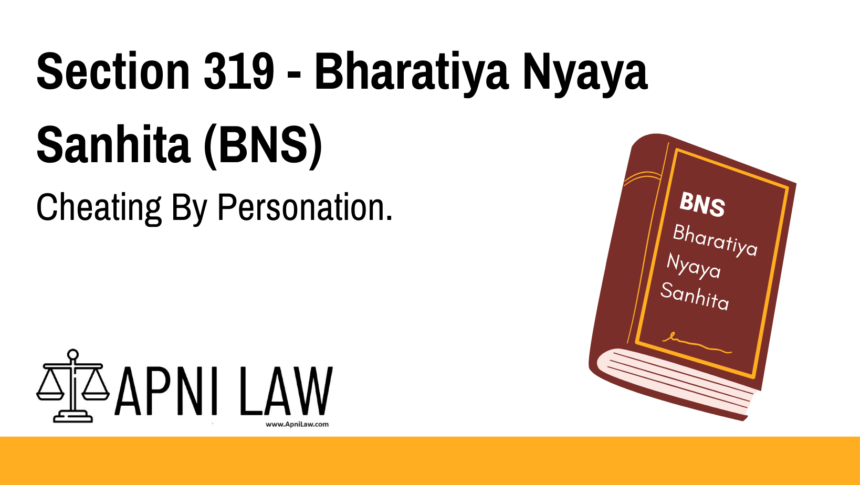Code: Section 319 BNS
(1) A person is said to cheat by personation if he cheats by pretending to be some
other person, or by knowingly substituting one person for or another, or representing that he
or any other person is a person other than he or such other person really is.
Explanation.—The offence is committed whether the individual personated is a real
or imaginary person.
Illustrations.
(a) A cheats by pretending to be a certain rich banker of the same name. A cheats by
personation.
(b) A cheats by pretending to be B, a person who is deceased. A cheats by personation.
(2) Whoever cheats by personation shall be punished with imprisonment of either
description for a term which may extend to five years, or with fine, or with both.
Explanation of Section 319 BNS
Section 319 of the Bharatiya Nyaya Sanhita (BNS) defines the crime of cheating by personation as an act where an individual deceives others by pretending to be someone else, whether that person is real or imaginary. This can include impersonating a well-known individual, a deceased person, or even an entirely fabricated identity. The law covers a broad range of deceitful activities, from fraud in financial transactions to identity theft.
The section also prescribes penalties, including imprisonment of up to five years, a fine, or both, depending on the severity of the case.
Illustration
Example 1: Impersonation for Financial Gain
A individual, pretending to be a wealthy banker named “Rajiv Sharma,” convinces a businessman to transfer large sums of money under the false pretense of a lucrative investment deal. This is considered cheating by personation under Section 319.
Example 2: Deceiving Through a Deceased Identity
A fraudster pretends to be “Mr. X,” a deceased person, to claim insurance benefits. Even though the person is imaginary, the act still qualifies as cheating by personation.
Common Questions and Answers on Section 319 BNS
1. What does “cheating by personation” mean under Section 319?
- Answer: It refers to the act of deceiving someone by pretending to be another person, whether that person is real or imaginary.
2. Can someone be punished for impersonating a deceased person?
- Answer: Yes, impersonating a deceased person to commit fraud is considered cheating by personation under Section 319.
3. What are the possible punishments for cheating by personation?
- Answer: The offender can face up to five years of imprisonment, a fine, or both.
4. Does the offence apply to online impersonation?
- Answer: Yes, online impersonation for fraudulent purposes, such as phishing scams, also falls under cheating by personation.
Conclusion
Section 319 of the BNS serves as a legal safeguard against deceptive practices where individuals impersonate others for personal gain. The law ensures that both real and imaginary personations are punishable offenses, thereby protecting the integrity of personal and financial transactions.









